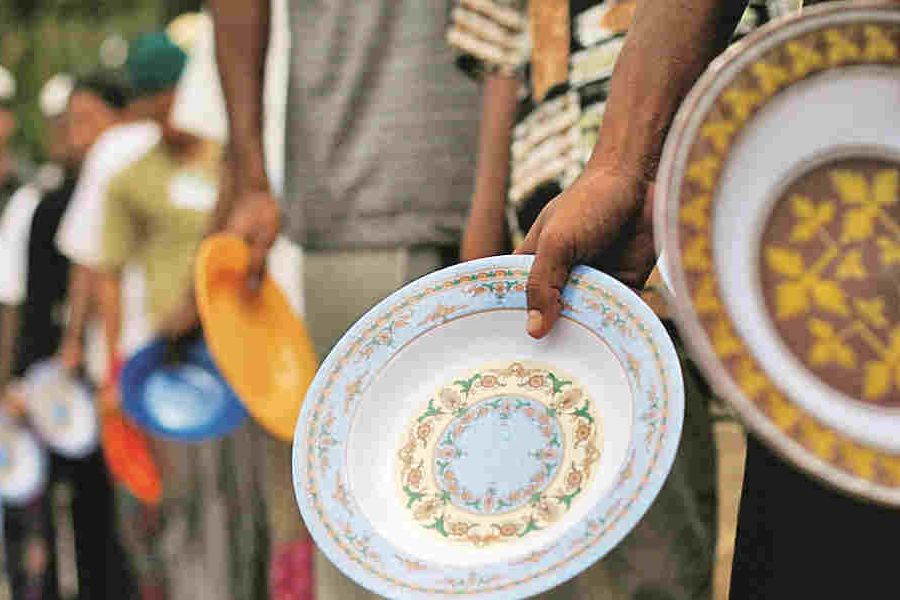The African Union’s full membership of the G20 has been widely celebrated. India’s role in pushing for AU’s G20 membership has also been appreciated globally. AU’s entry into the G20 has provided the continent a much-needed voice in global economic discussions. But to end Africa’s economic marginalisation, AU needs to use the G20 platform effectively.
Africa is currently reeling under acute food insecurity. The war between Ukraine and Russia has skyrocketed energy and food prices, making food unaffordable for most of the net food-importing countries of Africa. More than 20 African countries imported about 90% of their wheat from Russia and Ukraine. Given that Russia and Ukraine were also the largest sources of fertilisers for Africa, agricultural productivity is likely to fall, leading to further food insecurity.
Over half of the African population is moderately or severely food insecure. People experiencing ‘moderate’ food insecurity resort to reducing the quality and/or quantity of their foods and are often unsure about their ability to obtain food due to the lack of money or other resources. People suffering from ‘severe’ food insecurity have run out of food and go days without eating.
Africa accounts for only 4% of global greenhouse gases but suffers disproportionately from the impacts of climate change. Agriculture has experienced a 34% decline in productivity — the highest in the world — since 1961 due to climate change. Intergovernmental Panel on Climate Change estimates suggest that temperature increases in Africa will be higher than global mean temperature increases and droughts will become more severe and frequent. Given the low adaptive capacity of the population due to poverty and dependence on rain-fed agriculture, African people are likely to face extreme food insecurity due to climate change.
Africa has a huge annual food import bill of around $60 billion. Most estimates suggest that without massive investments, Africa’s annual food import bill will rise to $110 billion by 2025. Agriculture has not been a policy priority for Africa’s political leaders and the sector has traditionally received scant public investments. Although food security and agricultural development have emerged as major policy goals after the Malabo Declaration in 2014 when African heads of state committed to eradicating hunger and poverty through rural transformation, actual investments in agriculture have been low.
The only way forward for Africa is to grow its own food to become self-sufficient, an important goal under Agenda 2030 and Agenda 2063, Africa’s own continental master plan for development. This requires an urgent upscaling of investment in agriculture in all African countries. However, many African countries are currently reeling under a severe debt crisis and fiscal constraints are holding back investments in agriculture, health, and education. According to a recent report, out of 39 low-income African countries, 10 are in debt distress, 12 are at high risk of debt distress, and 17 are at medium risk. Sadly, external funds are drying up: the Ukraine-Russia war has led to cuts in European aid to Africa.
Food security should be AU’s top priority as it engages with the G20. It should push for a special package for Africa’s food security within the G20. This package will focus on providing immediate relief to countries in need and create a long-term master plan for a food-secure Africa. To increase its bargaining power within the G20, AU should seek to partner with friendly countries like India. India has a long history of development cooperation with Africa; food security and agriculture have been important areas of cooperation between India and Africa. AU’s G20 membership will be meaningful only if it is able to push for its own agenda of a food-secure Africa.
Malancha Chakrabarty is a Senior Fellow and Deputy Director (Research), Observer Research Foundation. Manjushree Banerjee is an independent researcher










